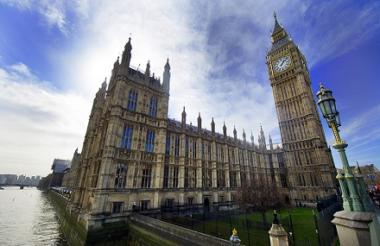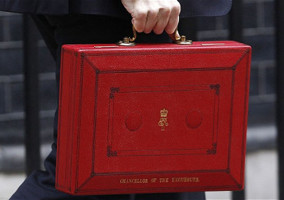Whilst it may not have been welcomed with open arms by charities, yesterday’s budget nonetheless signals something of a new era; a government willing to use public money to tackle problems, be they coronavirus or structural problems with the UK economy, and willing to spend big in their attempt to get stuff done.
The sector needs to rethink how to act and campaign to take advantage of this change for the causes and people it cares about.
As part of his £30bn fiscal package, the new chancellor unveiled a suite of support to see smaller businesses through the corona virus pandemic. At the time of writing it’s assumed that these measures, such as refunding statutory sick pay costs, will be available to charities as well as businesses – one certainly hopes so.
Other tax changes, such as temporary business rate relief, will affect charities less thanks to their existing reliefs but could still have a small impact. The government has promised to refund the losses incurred to local authorities, but we don’t have much detail about when or how this will occur. More pressure on already stretched local authority budgets could have consequences for charities providing local services.
The emergency package included changes to benefits, essentially to make them easier to access during the crisis. Charities helping people who rely on our benefits system need to make sure their clients are aware of these changes. Moreover, the acknowledgement that these changes are possible (even if it is to deal with a crisis) may change the conversation.
Charities should consider how they can capitalise on this. For example, it should be easier to advocate for relaxing the requirement to attend a job centre to receive benefits if it has been shown the system worked fine during this period. For once, institutional inertia will be on the sector’s side.
How can charities contribute to the levelling up agenda?
Looking past the coronavirus crisis, the big focus in the budget ‘proper’ is levelling up the regions. Again, charities need to think about what they contribute to this narrative. They also need to rethink what it means for their operations and influencing. We have a new metro mayor, for West Yorkshire, a new ‘campus’ with elements of the Treasury, BEIS, DIT and MHCLG in the North and eventually more than 22,000 civil servants outside London. All of this presents an opportunity. The sector should be building new relationships with these tiers of local government to influence policy with officials better distributed around the country.
For charities we saw some of the small ‘feel-good’ giveaways to popular causes and charities that government often likes. The Football Foundation will receive £8m, matched by the Premier League and Football Association, to build pitches in areas of need, and the Armed Forces Covenant trust will receive £10m to support veteran’s mental health.
And of course, there were announcements that charities are likely to be involved in delivering even if they weren’t mentioned by name. The £643m for accommodation and support services to help people off the streets, a £250m Cultural Investment Fund and the £46m from the Shared Outcomes Fund to improve support for people with multiple and complex needs.
This money is not to be sniffed at. More significantly, the apparent end to a decade of austerity and bearing down on debt, once argued as essential to our nation’s very survival, will be welcome to many in the sector. It opens up all sorts of opportunities to campaign which can’t be knocked back any more by the ‘there is no magic money tree’ line.
Reason to worry
But against the backdrop of the £175bn of spending planned during this parliament I think there is reason for charities to be a bit worried.
This was a budget that was about the hard, measurable and visible. It was about science and railway stations, R&D and roads. There was notably very little on the ‘softer’ stuff that the charity sector is often doing. There was little on communities, nothing on social care. It seems that advocates of social infrastructure have not been able to make themselves heard this time around.
And while austerity may be ending for some departments, there was little for many of the public services or for welfare. Demand on charities driven by cuts to these areas since 2010 will not change, through this budget at least.
How can we adapt our messages?
That said, there are still opportunities to have a major influence, especially as we move towards the Spending Review. The government is looking at social prescribing, the future of social care and the replacement for the shared prosperity fund. The detail is still to be decided, so the charity sector could and should be part of the conversation.
The sector should reflect on the tone of this budget, the refrain of ‘getting it done’ that the chancellor repeated again and again. The sector needs to ask itself why, with a partial exception of the environment, the issues it cares about were overlooked for spending. How can you adapt your messages to be heard? What would our equivalent of “50 million potholes filled” look like?
Dan Corry is chief executive of charity consultancy and think tank New Philanthropy Capital (NPC). He has previously worked as an economist at both the Treasury and Number 10.
Related articles












